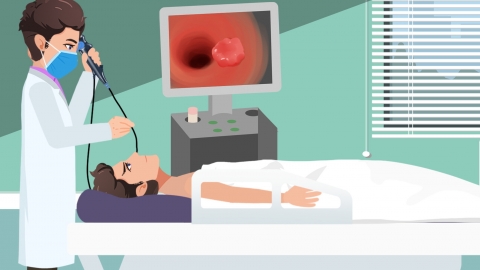Is it possible to perform a gastroscopy for gastrointestinal bleeding?
Whether a patient with gastrointestinal bleeding can undergo gastroscopy needs to be determined comprehensively based on the severity of the condition, stability of vital signs, and the presence of contraindications. Detailed analysis is as follows:

If the patient's condition is relatively stable, with minimal bleeding, no persistent hematemesis, stable vital signs, and no contraindications such as severe cardiopulmonary disease or coagulopathy, gastroscopy can generally be performed. Gastroscopy allows direct visualization of the bleeding site within the stomach and identification of the underlying cause. Additionally, hemostatic treatment can be administered simultaneously during the examination, helping to rapidly control the condition and provide accurate guidance for subsequent treatment.
If the patient's condition is critical, such as continuous massive hematemesis or signs of shock, unstable vital signs, or the presence of contraindications like severe cardiopulmonary insufficiency or aortic aneurysm, gastroscopy is temporarily not advisable. In such cases, initial management should focus on stabilizing vital signs using medications and fluid resuscitation. Once the patient's condition improves, a reassessment can be conducted to determine whether gastroscopy can be safely performed, thus avoiding potential risks during the procedure.
The decision on whether a patient with gastrointestinal bleeding should undergo gastroscopy must be made by a physician after a comprehensive evaluation. Patients should not request or refuse the procedure on their own. If the examination is indicated, patients should fast and abstain from fluids as instructed before the procedure and cooperate with medical staff. After the examination, if symptoms such as worsening abdominal pain or increased hematemesis occur, the physician should be informed promptly. After identifying the cause via gastroscopy, patients should actively cooperate with further treatment, attend regular follow-up visits, and monitor gastric recovery.





